|
|
|
|
Nau mai hoki mai and welcome.
We’ve become used to requests to help fund a stranger’s medical treatment, usually accompanied by a compelling story of hardship or desperate need. Crowdfunding sites like New Zealand’s Givealittle and especially its giant US equivalent GoFundMe have become what our lead story today describes as an “entrepreneurial safety net” – an option when state healthcare or insurance aren’t enough.
But as Tom Baker and his fellow authors explain, crowdfunding very often reflects the very inequalities that force people to resort to it in the first place. In the highly competitive crowdfunding universe, people are seen as more or less deserving depending on their disability or illness, as well as their age, gender and ethnic appearance. Ultimately, it says as much about the crowd as the person being funded.
There is plenty more to read in this newsletter and on our homepage, thanks as always for your support and readership. Until next time, mā te wā and all the best.
|
Finlay Macdonald
New Zealand Senior Editor & NZ Editor: Politics, Business + Arts
|

|
|
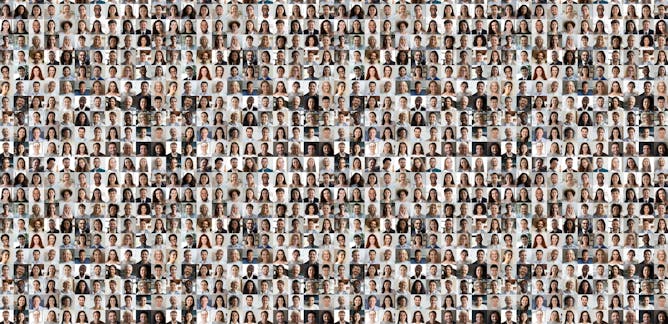
Shutterstock/fizkes
Tom Baker, University of Auckland; Ann E. Bartos, University of Auckland; Caitlin Neuwelt-Kearns, University of Auckland; Octavia Calder-Dawe, Te Herenga Waka — Victoria University of Wellington; Susan E Wardell
Crowdfunding campaigners appeal to potential donors by describing the recipient as the subject of misfortune, rather than personal irresponsibility, and therefore deserving of the their sympathy.
|

Shutterstock/Celiafoto
Tim Tenbensel, University of Auckland
With great expectations come great challenges, and one of the biggest facing the new Health NZ agency will be rebuilding a collaborative ethos in the sector.
|

Shutterstock/Inthon Maitrisamphan
Verna Smith, Te Herenga Waka — Victoria University of Wellington
By borrowing from the British NHS system of working closely with general practitioners, this radical shake-up of New Zealand's health system can greatly improve primary healthcare.
|
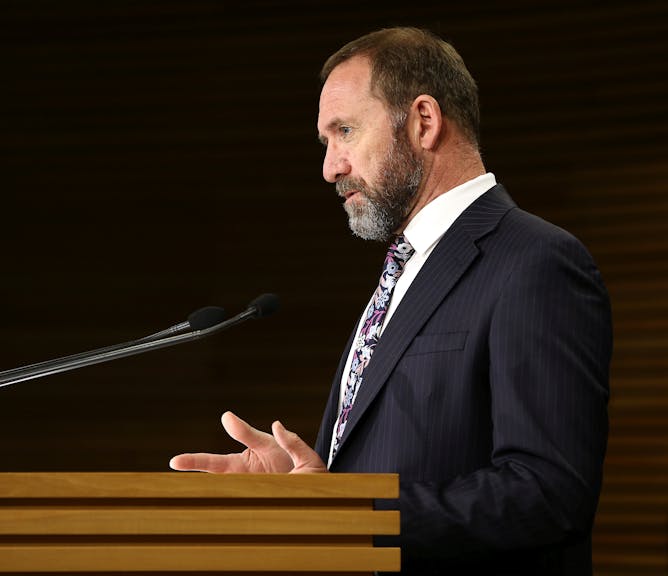
Getty Images/Hagen Hopkins
Dominic O'Sullivan, Charles Sturt University; Heather Came, Auckland University of Technology
The announcement of a new Māori health authority could radically transform health outcomes for Māori, but its success depends on how independent and accountable it will be.
|

www.shutterstock.com
Nicolas Pirsoul, University of Auckland; Maria Armoudian, University of Auckland
New Zealanders pay the costs of poor environmental and infrastructural governance, but have little opportunity to influence policy in the first place. Here's how that could change.
|

Getty Images/Mark Tantrum
Nicholas Steyn, University of Auckland; Michael Plank, University of Canterbury
Although most border workers are now vaccinated, regular testing remains essential to guard against the risk of a major outbreak in the community.
|

www.shutterstock.com
Rowan Light, University of Auckland
As trans-Tasman borders re-open and in the wake of the Christchurch attacks, Anzac Day gains new meaning and presents new challenges – just as it has always done.
|
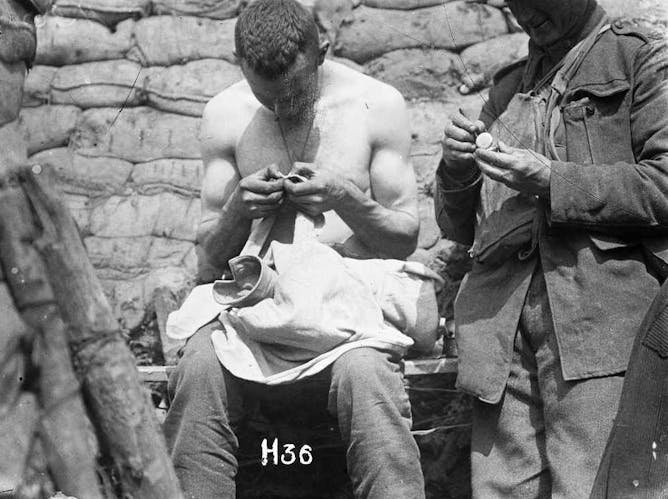
Royal New Zealand Returned and Services' Association Collection, Alexander Turnbull Library, Wellington, NZ (Tiaki reference number 1/4-009458-G)
Georgia McWhinney, Macquarie University
Anzac soldiers wrote poetry about body lice, shared treatment tips and experimented with new ways of bathing.
|
From our foreign editions
|
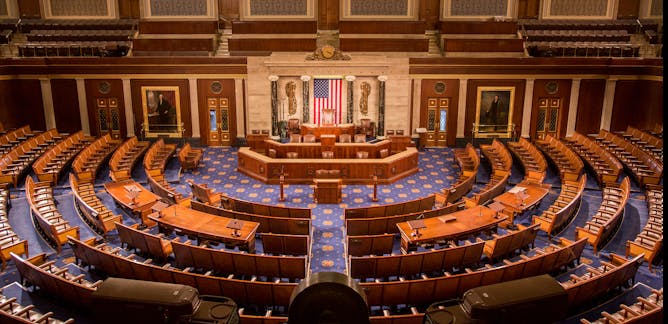
Dudley L. Poston Jr., Texas A&M University
The US Census Bureau has announced which states will gain and lose representation in Congress as a result of the 2020 census. Here's how it makes the calculations.
| |

Mario Borunda, Oklahoma State University
If humanity wants to travel between stars, people are going to need to travel faster than light. New research suggests that it might be possible to build warp drives and beat the galactic speed limit.
|
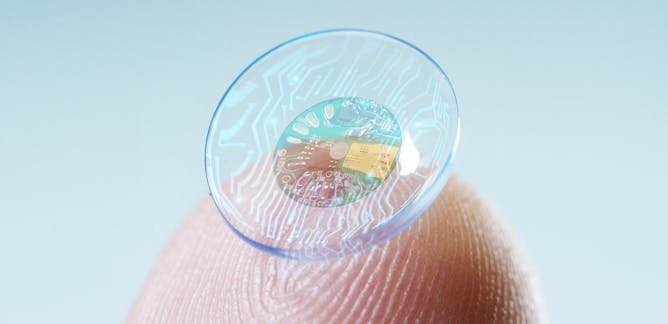
Bishakh Rout, McGill University
Contact lens technology is reaching the point where science fiction meets reality. From interfaces to pressure monitors and drug release features, the contact lens industry is about to be disrupted.
| |
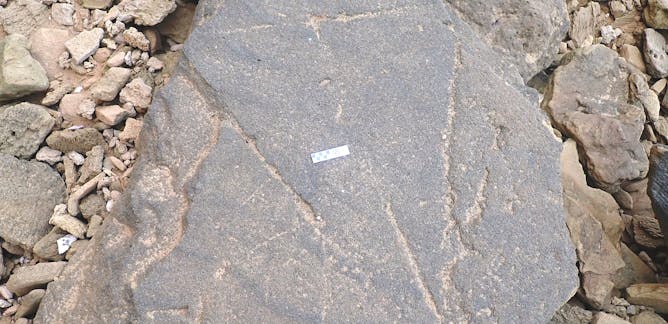
Charles Helm, Nelson Mandela University
It appears that the South African Cape south coast's dunes and beaches formed a vast canvas of sand on which our ancestors could leave their mark.
|
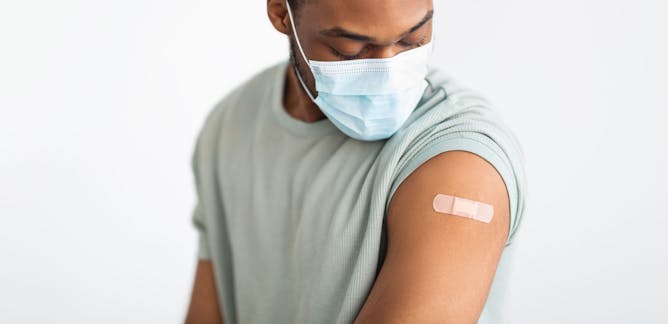
Veenu Manoharan, Cardiff Metropolitan University
There are many reasons your immune system might react differently to vaccines.
| |
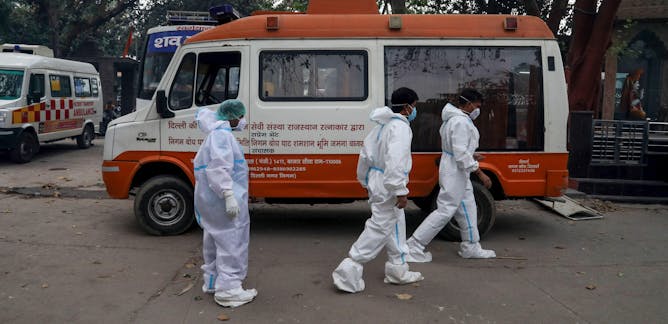
Michael Head, University of Southampton
Stories of reaching herd immunity were certainly premature.
|
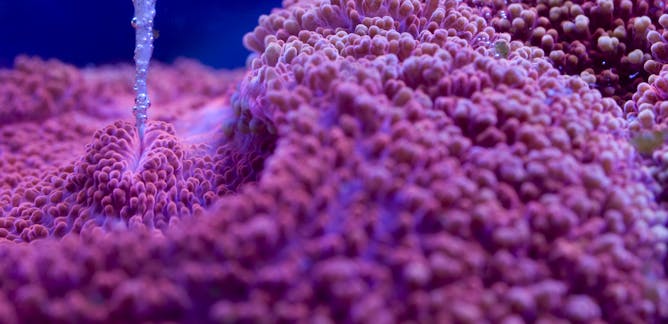
Adam David Hines, The University of Queensland; Bruno van Swinderen, The University of Queensland
Scientists still still don't fully understand how general anaesthesia affects the brain and body. A molecule found in bioluminescent stony coral may shed some light.
| |

Natalie Jesionka, University of Toronto
Second-generation storytellers are being candid about challenges and benefits of creative careers in the face of family hopes or fears, or societal resistance to hearing marginalized narratives.
|
|
|
| |
| |
| |
| |
| |
| |
|
|
|
|
|
|
|